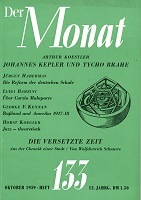
Mythos und Mensch
Review of Rudolf Hagelstange’s novel “Spielball der Götter – Aufzeichnungen eines trojanischen Prinzen” (Pawn of the Gods – Notations of a Prince of Troja), published in 1959
More...We kindly inform you that, as long as the subject affiliation of our 300.000+ articles is in progress, you might get unsufficient or no results on your third level or second level search. In this case, please broaden your search criteria.

Review of Rudolf Hagelstange’s novel “Spielball der Götter – Aufzeichnungen eines trojanischen Prinzen” (Pawn of the Gods – Notations of a Prince of Troja), published in 1959
More...
Lysis is the first and the only one among Plato’s writings which concerns the subject of philia as a main aim of the issues being discussed. Friendship in Lysis does not only embrace intensive and elusive desire for love but also all other types of passions that people have towards something or somebody. This dialogue is unique because it initiates a problem of philia, which appears in the following Plato’s writings. But what is more, is the fact that this Greek philosoper uncovers various ideas and opinions as far as philia is concerned. And as a result it becomes an outline of numerous Plato’s inquiries concerning the matter of philia.
More...
The author tends to emphasize that there are almost the three reasons to analyse Callimachus' epigram about Diodorus (Pfeiffer fr. 393, 1-4): First of all, the date of this epigram shows us that it represents the earliest information about Diodorus doctrine. Second, another support of its authenticity could be found in fact that this epigram expressing part of the atmosphere following, and also remaining after, discussing the Diodorian topics. Third, its philosophical relevance, usually minimised in classical literature, could be found in those facts that it could show the way out in many today dilemmas about his philosophical claims and support some of our contemporary assumptions about its logical conception, as well as that of space, time, and meaning of statements. The author defends a position that it is necessary to develop well-grounded and methodologically relevant base covering the historical reconstruction and the interpretation of ancient logical theories.
More...
This thought piece is taken from two legendary teachings created during the axial age in China and India. It was written to introduce to the Polish agenda of how to introduce young men in transition from pupil to the student of philosophy. The story from China exemplifies the traditional Chinese culture of emphasizing tenacity and hard work to introduce people to understand the phenomenon of life and to show how a man can overcome great obstacles in the world. The story examines a variety of insights into the human disposition of perseverance, audacity, and transformative power of man with determined heart. Where seemingly absurd ideas can be carried out to fruition when people have the collective heart to push even a utopian vision aimed at changing society through symbolic interventions from heaven. The second tale from India is taken from the immortal conversation between the father and his son extracted from the Vedic text of the Upanishad. The tale reminds us of the natural foolish disposition of a young student in his study of life. He learned, the importance of human discovery of that which is permanent and unchanging and eternal. At the end, the young student realized that the trajectory of human pursuit of knowledge is to liberate himself from the drudgery of existence burdened by the sensible world. Such plight of a human pilgrim is aimed at his being taught to rise from the unreal to Real, from untrue to Truth, and from death to Immortality.
More...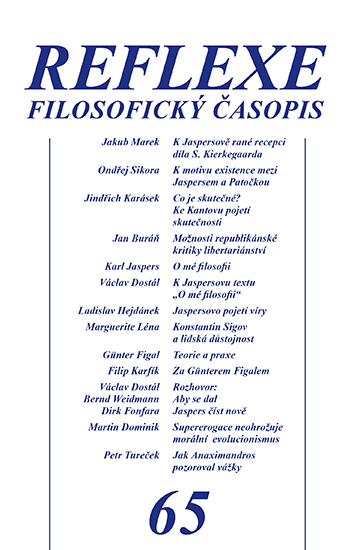
This paper is a discussion of Anaximander of Miletus, born around 610 BCE, is recognized for his work on cosmology, zoogony, and anthropogony—the origins of animals and humans. His biological research, though scantily preserved, suggests that the first creatures emerged in moisture, surrounded by a spiny bark, and later moved to drier land where they survived briefly after the bark cracked. Anaximander's ideas resonate with contemporary science in that fish are considered precursors to humans and terrestrial organisms originated from water. However, unlike Empedocles, he did not incorporate natural selection into his theories. The concept of "breaking of the bark" during the transition from water to land is central to his thought, possibly inspired by observations of aquatic insects like dragonflies or mayflies, which undergo incomplete metamorphosis and emerge on land as adults. Anaximander's student, Anaximenes, further developed the analogy between the world and humans. The philosopher's zoogonic views are not myth or speculation but based on empirical observation, offering a bridge between aquatic and terrestrial life forms.
More...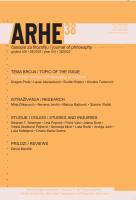
The modern philosophical doctrine usually termed “human exceptionalism,” which holds that human beings, because of their perceived intellectual superiority over other animal species, have a moral value that cannot be claimed by other species which entitles humans to use other animals to serve their needs, has its philosophical roots in Greek philosophy, especially in the works of Aristotle and in the Stoic doctrine of oikeiōsis, which holds that human beings share a kinship with other humans but not with other species of inferior intellectual endowments. The doctrine of “human exceptionalism” is used in the twenty-first century to justify the wholesale slaughter worldwide of non-human animals for food, clothing, medical and entertainment purposes. The claims of “human exceptionalism” are countered in the present day by animal rights philosophers and by animal welfarists of various types who argue either that non-human species have a sufficient degree of reason to entitle them to inclusion in the sphere of human moral concern, or that the possession of reason is itself an irrelevant criterion for moral consideration, and that animal suffering must be taken into account in human interactions with other animal species.
More...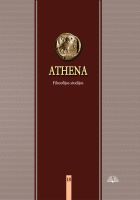
The article is dedicated to the problem of relevance of the Classical Greek understanding of philosophy to contemporary philosophy. A distinction is made between the relevance of the Greek philosophy that has already been realized, or made actual, in the sphere of contemporary philosophy and culture, and the relevance of the Greek philosophy which is yet in need of realization, that is, which has a potential of being realized in the future. The author, mainly focusing on this latter kind of relevance, for it is more interesting from the philosophical point of view and suggests new ways to reinvigorate the contemporary field of philosophical thought, discusses the original Greek understanding of philosophy that can be discerned from the ancient Greek philosophical texts and the original Greek term for philosophy, philosophia. The author presents an analysis of the Greek word philosophia from the etymological and conceptual points of view, disclosing its several layers of meaning. It is argued that the Greek philosophical thinking employs a productive combination of premethodical and methodical thought, deriving from this combination a specific synergy that might also be useful to contemporary philosophy. A point is made that the original Greek notion of philosophy, understood as the love of divine wisdom, presupposes both modesty, stemming from the acknowledgment of one’s absolute ignorance of the most important philosophical answers, and intellectual passion. The author makes a claim that the original close and deep relation between the Greek philosophy and astronomy was instrumental in the original Greek understanding of the philosopher as a theōros of a special kind, that is, as a theoretic viewer of the entire cosmos who focuses on the whole of the cosmos (or reality in general), not on its individual constituents and details. What was expected of the Greek philosopher was the ability to deeply appreciate the beauty, unity, and underlying divine order of the cosmos, not the capacity to acquire the knowledge of concrete information related to it. The attention is drawn to the circumstance that the Greek philosopher’s aesthetic appreciation of the cosmos that took place at the moments of its theoretical contemplation had also a specific ethical aspect to it – an aspect that cannot be simply explained in terms of the Classical Greek virtue ethics and can be rather viewed in terms of the modern approaches to ethics. The relation between the ability to acknowledge one’s ignorance of the most important matters and the capacity to theoretically contemplate and aesthetically appreciate the cosmos in holistic terms is viewed by the author as potentially relevant to those contemporary thinkers who seek to reassert the unique status of philosophy, its special place among other disciplines, and to rethink the radical difference between philosophy and science. After discussing some other aspects of potential relevance of the Greek understanding of philosophy to contemporary philosophy, the author makes a conclusion that the Classical Greek understanding of the nature of philosophy should be viewed not as having to replace, but as being able to complement the current understanding of the nature and mission of philosophy.
More...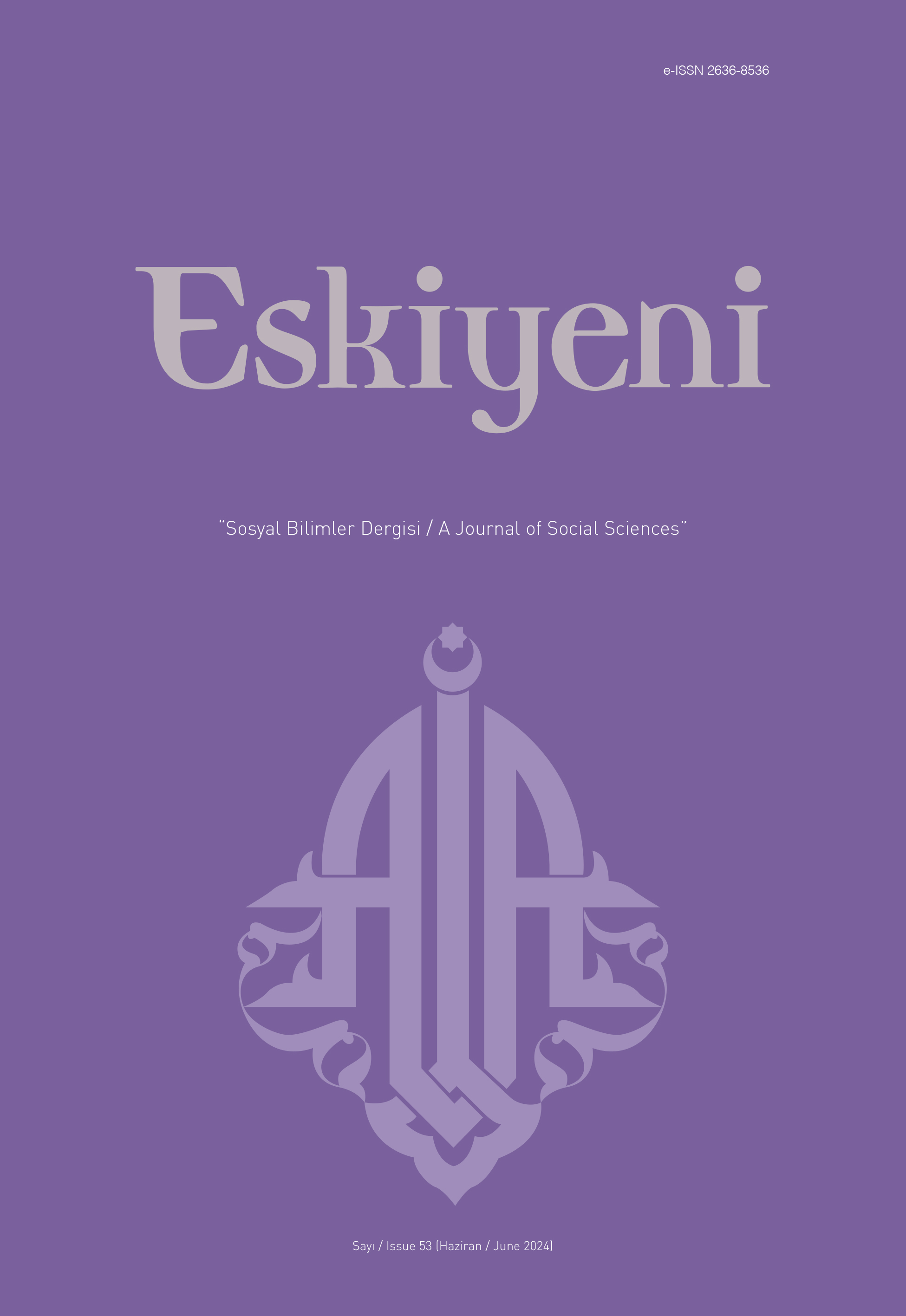
This study aims to reveal what Plato’s conception of education (paideia) is, regardless of the views of Plato’s commentators. Therefore, by directly referring to Plato’s dialogues, the educator, the educated and his views on education will be explained in outline. The article will be limited to Plato’s views on education in the dialogues, not his metaphysical thought as a whole. Plato’s conception of education differs fundamentally from other educational paradigms in that it does not involve merely transferring information to the student or endowing the student with the ability to see. Plato deals with this issue in the seventh chapter of his masterpiece known as Politeia/Republic, while describing the famous Allegory of the Cave. Accordingly, it is stated that the student already has a seeing eye, so the problem is not related to vision, but the main problem is that the student’s point of view is not facing in the right direction. According to Plato, knowledge (episteme) cannot be something acquired later because what is acquired lateris subject to change. However, what is “subject to change” cannot be knowledge of the truth or true knowledge. Therefore, Plato defends the idea that knowledge of truth must be present in the student’s memory. According to Plato, the essence of knowing is remembering (anamnesis) has been revealed accordingly. The presence of the knowledge of the truth in memory is related to the fact that the psyche (soul) possesses an awareness or innate knowledge of the truth prior to its union with a body or its incarnation. However, the human psyche has forgotten that it is aware of the truth in question. Plato describes this situation as amnesia. The whole point is to get out of the amnesia state and return to the situation before birth. Education(paideia) plays the main role in realizing or remembering the knowledge of the truth stored in the memory. Another point that should be emphasized in Plato’s understanding of education is that it is psyche that is educated, not the person. Because, according to Plato, a person or identity corresponds to a character acquired later. In this sense, since the character is also subject to change, it is the psyche that needs to be trained, not the character. In addition, the study will include the views of the Philosophy of Education, which is a sub-branch of Modern Philosophy, is examined especially within the idealist understanding of education and Plato’s views on education are analysed in this context.
More...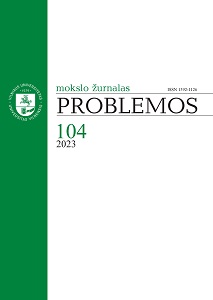
Many academics and researchers who publish scholarly articles on Plato’s philosophy of education claim that the ultimate educational goal for Plato is simply the acquisition of virtues. While such a claim may not be entirely incorrect, it is nevertheless substantially wanting; for although the acquisition of virtue is no doubt paramount, for Plato it primarily serves as a means to another end. In this paper, I aim to show that, for Plato, the final summit of all educational enterprise is not really to become virtuous but rather to attain the state of becoming like God, and that is, homoiōsis theōi.
More...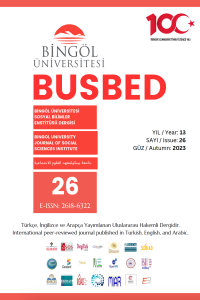
Aristotle’s distinction between the theoretical and the practical sciences leads to two types of reasoning. While the subject of theoretical sciences is the immoveable entities, the subject of practical sciences is the contingent field of action. The primary motivation that drives people to action is a preference, and behind every preference, there is practical reasoning (logismos). The concept of logismos, which has a rich content of meaning and derives from the concept of ‘logos’, which can be accepted as the reason for this richness, is one of the concepts that determine the choice of action. According to Aristotle, reason in the practical field operates differently from the classical theoretical syllogism, which aims to reach the truth and is the essential tool of theoretical reasoning. Because the practical field is where probability prevails, as stated. Therefore, the first thing to do to clarify the meaning of logismos is to identify its difference from the theoretical syllogism. How does the agent reason while an action occurs, and how does this reasoning relate to the theoretical syllogism, which is the classical Aristotelian reasoning? First of all, practical reasoning has at least two premises, one of which expresses something desired, and the other states a perceptual judgment, a state of affairs. However, the conclusion derived from these premises is not a proposition, contrary to the theoretical syllogism, but an action. Practical reasoning differs formally from theoretical syllogism and does not have the precision that theoretical syllogism has.
More...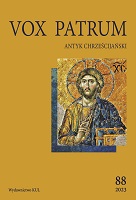
This article is to reconstruct, for the first time in the existing scholarship, the angelology in Porphyry of Tyre (233-305), the Neoplatonist who introduced angels and archangels into Greek philosophy. Angels were not found in any philosophical system before Porphyry. My philological analysis of the select fragments from Porphyry’s writings: Homeric Questions on the Iliad, Letter to Anebo, On Abstinence, Commentary on Plato’s Timaeus, On the Styx, On the Philosophy from Oracles, and testimonies included in Augustine’s City of God allows to make the following conclusions. Porphyry divided the angelic hierarchy into three orders and included them into the world soul structure, analogically to its trichotomy. He placed the supreme angelic order in the fixed stars, the second archangelic order in the planetary spheres, and the third order – the so-called ferrymen – in Earth’s atmosphere. The angels and archangels of the celestial spheres coincide with the cosmic gods, whereas the sublunary “ferrymen” step into daemons’ shoes, the so-called mediators in Plato’s Symposium. The angels deliver messages from cosmic gods and good daemons, and this is their main function. Divine message, transmitted and echoed by angels, is received only by some chosen people: priests and prophets, to whom Porphyry referred the Homeric formula “Zeus’ messengers”. In constructing his angelology Porphyry might be influenced by esoteric texts of the second century he studied: Apollo’s hexametric prophecies, the Chaldean Oracles by Julian the Theurgist, On Nature attributed to Zoroaster, besides An Account of India by Bardaisan of Edessa (218-222) he translated from Syriac into Greek.
More...
Tense logic is a branch of contemporary logic which includes formal devices that allow us to deal with the temporal relations between propositions. The aim of our paper is threefold: 1) to reveal how Aristotelian philosophical ideas about time, truth, possibility and necessity were reinterpreted by the founder of contemporay tense logic Arthur Prior; 2) to discuss what novel solutions to the classical problem of future contingents are available using Priorean invention; 3) to describe how the tools of tense logic have transcended their original theoretical purposes.
More...
This paper aims to revise previous findings concerning lines 406–430 of Seneca’s Phaedra. Referring to the manuscript tradition, it demonstrates that the heading before 406 and the marginal notation used to identify speaking characters may have been misinterpreted as a result of this notation having been erased from codex Etruscus, the main representative of one of the two branches of the manuscript tradition of Seneca’s plays. Next, it argues that because of the formal consistency of this codex reading (E) – as contrasted with the inconsistencies in A – and the fact that E makes satisfactory sense here, the reconstructed reading of Etruscus should be taken into consideration in future editions of Seneca’s drama.
More...
This paper sheds light on Plato’s represen-tation of Zeno in the Phaedrus as a master of antilogic.It examines the evidence in the Phaedrus drawingattention to a certain distribution of labour between thefollowers of Palamedes, who practice antilogic, on theone hand and those of Nestor and Odysseus, who prac-tice logography, on the other. I suggest that the reasonfor which Plato prefers to associate Zeno with antilogicrather than Protagoras, who might strike us as an obvi-ous choice, is that the former, unlike the latter, wouldserve the purposes of his Socratic apologetics, remov-ing from his teacher the reputation that Aristophanes’Clouds had bequeathed him. This reading ties in withand draws support from Zeno’s remarks concerningthe nature of his book in the Parmenides, a dialoguethat Plato intends us to understand as a prequel that—again along the lines of an apologetic agenda—claimsSocrates’ philosophical pedigree establishing his tieswith the Eleatic tradition.
More...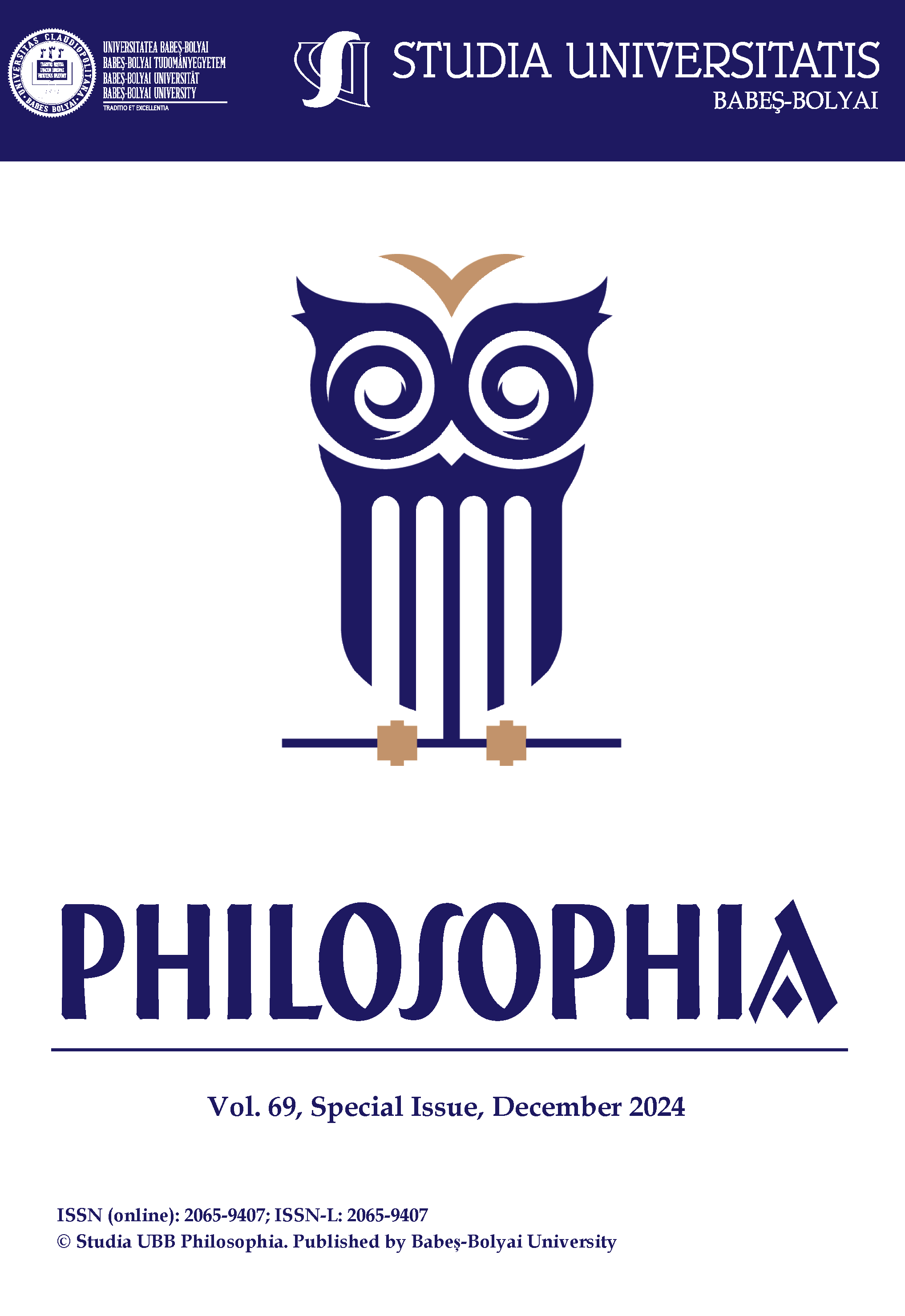
The present paper is rooted in an older concern, regarding Augustine’s contradictions. In the history of ideas there is a common place that authors contradict themselves and that their ideas migrate from one pole to another. This paper aims to present the case study regarding Augustine’s contradictions. I propose to focus on an issue that interfered later with the Church’s politics, namely the subject of peace and war, as we find them in De Civitate Dei and Epistola 185. Even though the issue of peace and war appears in several of his writings, those mentioned before seem more relevant for the topic, as they were also approached previously by other authors. I equally propose to highlight that Augustine echoes some ideas on war that can be read under Plato’s pen, although he was more of a Plotinus’s follower. But, as a personal touch, I would try to incorporate it within the entire dual thought of Augustine, that was echoed in the following centuries in the thought of the scholastics and the policy of The Catholic Church.
More...
This paper discusses the possible classification of Aristotle’s syllogistic as a non-classical logical system, positing Aristotle himself as a non-classical logician. Initially, we find compelling arguments for this thesis, particularly regarding the expressive power and the rules governing logical inference inherent in Aristotle’s approach. My analysis nevertheless addresses two significant counterarguments. The first, the special case objection, posits that Aristotle’s syllogistic can be framed as a classical logic which deals with canonical syllogistic forms. I argue that this objection is insufficient, as it is possible to point cases in which his system seems to differ from classical logic. The second counterargument, the formalisation gap objection, highlights that Aristotle’s syllogistic resists straightforward modern logical interpretations. This latter objection is evaluated as more compelling and substantial. In particular, a distinction between two concepts is proposed which could help us understand what Aristotle was aiming at in his theory of inference: the notions of ‘to follow from’ and ‘to be a conclusion of’. While the former aligns with the usual sense formal validity, the second requires an inferential structure connecting the premises to the conclusion, explaining why Aristotle excluded inferences like A⊢A from syllogisms despite acknowledging that A follows from A.
More...
In life you must find your way, the real reason of your existence, and not depend as a puppet of what others think, say or do. You have to have clear ideas of what you want and get away from the distractions and do not act because of hypocrisy or selfishness, believing to adapt to ‘souls’ of others, which in reality you do not know (probably you do not even know yours). This is the direction in which you should work, Marcus Aurelius keeps in his Meditations. It’s your soul which you must find and you should go; you must respect primarily the soul that belongs to you and not depend on the souls of others, although you also have to want to understand them, but you need to know the movements of yours first, and from these those of others. The main goal of our life is to know the real nature of our soul, and its place in the souls of other people around us.
More...
The aim of this paper is to discuss one possible interpretation of Plato’s Third Man argument, Plato’s theory has been outlined by focusing on those premises usually taken as important for the formulation of the argument. The argument is then brought into connection with the theory of types although it is not assumed that self-predictional sentences in Plato’s theory have the same role as in Russell’s paradox. Employing the notion of “well-defined class”, it is pointed out in what respect the argumentation is invalid, i.e. why Plato’s theory of ideas needs not to lead to an infinite regress or a paradox of self-predication.
More...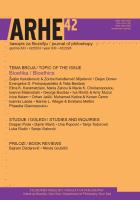
The testimonies from antiquity say that Thales of Miletus predicted a solar eclipse. Many experts claim that the eclipse happened on 5/28/585 BC, and this date is often marked as the beginning of Greek philosophy and science. This prediction of a solar eclipse can be justifiably doubted. However, if it is true that Thales predicted a solar eclipse, the question arises whether he found a way to predict eclipses or was familiar with the astronomy of older civilizations. This article will examine whether Thales predicted a solar eclipse and, if so, what method he used.
More...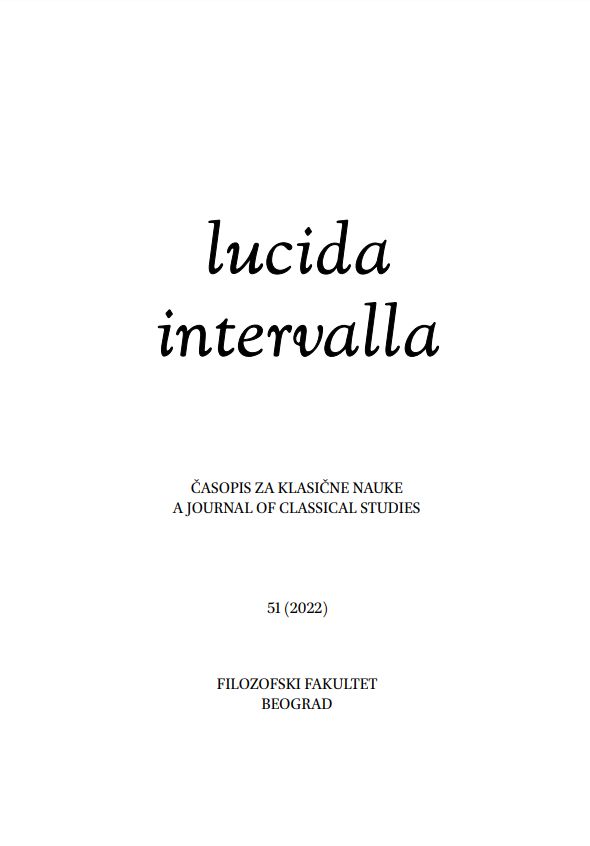
This article discusses the way in which Empedocles points to the limits of human knowledge in order to eleviate his own all-encompassing philosophical insight. Based on the analysis of the pertinent fragments, the author investigates Empedocles’ criticism of the common human views of birth, life and death, and of the nature in general, and compares it with the philosopher’s divinely inspired explanations of the same phenomena. Empedocles communicates his universal knowledge to a dedicated and intelligent individual, who is addressed by the philosopher in a way that clearly separates him from the confused and erring majority, which may be recognised as the plural addressee of several extant fragments.
More...